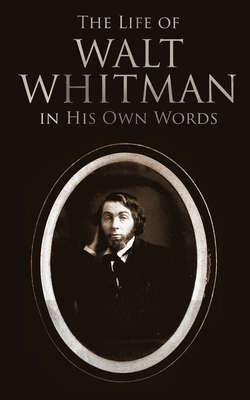Читать книгу The Life of Walt Whitman in His Own Words - Walt Whitman - Страница 48
На сайте Литреса книга снята с продажи.
ABRAHAM LINCOLN
ОглавлениеTable of Contents
August 12th.—I see the President almost every day, as I happen to live where he passes to or from his lodgings out of town. He never sleeps at the White House during the hot season, but has quarters at a healthy location some three miles north of the city, the Soldiers' home, a United States military establishment. I saw him this morning about 8 1/2 coming in to business, riding on Vermont avenue, near L street. He always has a company of twenty-five or thirty cavalry, with sabres drawn and held upright over their shoulders. They say this guard was against his personal wish, but he let his counselors have their way. The party makes no great show in uniform or horses. Mr. Lincoln on the saddle generally rides a good-sized, easy-going gray horse, is dress'd in plain black, somewhat rusty and dusty, wears a black stiff hat, and looks about as ordinary in attire, &c., as the commonest man. A lieutenant, with yellow straps, rides at his left, and following behind, two by two, come the cavalry men, in their yellow-striped jackets. They are generally going at a slow trot, as that is the pace set them by the one they wait upon. The sabres and accoutrements clank, and the entirely unornamental cortège as it trots towards Lafayette square arouses no sensation, only some curious stranger stops and gazes. I see very plainly ABRAHAM LINCOLN'S dark brown face, with the deep-cut lines, the eyes, always to me with a deep latent sadness in the expression. We have got so that we exchange bows, and very cordial ones. Sometimes the President goes and comes in an open barouche. The cavalry always accompany him, with drawn sabres. Often I notice as he goes out evenings—and sometimes in the morning, when he returns early—he turns off and halts at the large and handsome residence of the Secretary of War, on K street, and holds conference there. If in his barouche, I can see from my window he does not alight, but sits in his vehicle, and Mr. Stanton comes out to attend him. Sometimes one of his sons, a boy of ten or twelve, accompanies him, riding at his right on a pony. Earlier in the summer I occasionally saw the President and his wife, toward the latter part of the afternoon, out in a barouche, on a pleasure ride through the city. Mrs. Lincoln was dress'd in complete black, with a long crape veil. The equipage is of the plainest kind, only two horses, and they nothing extra. They pass'd me once very close, and I saw the President in the face fully, as they were moving slowly, and his look, though abstracted, happen'd to be directed steadily in my eye. He bow'd and smiled, but far beneath his smile I noticed well the expression I have alluded to. None of the artists or pictures has caught the deep, though subtle and indirect expression of this man's face. There is something else there. One of the great portrait painters of two or three centuries ago is needed.
